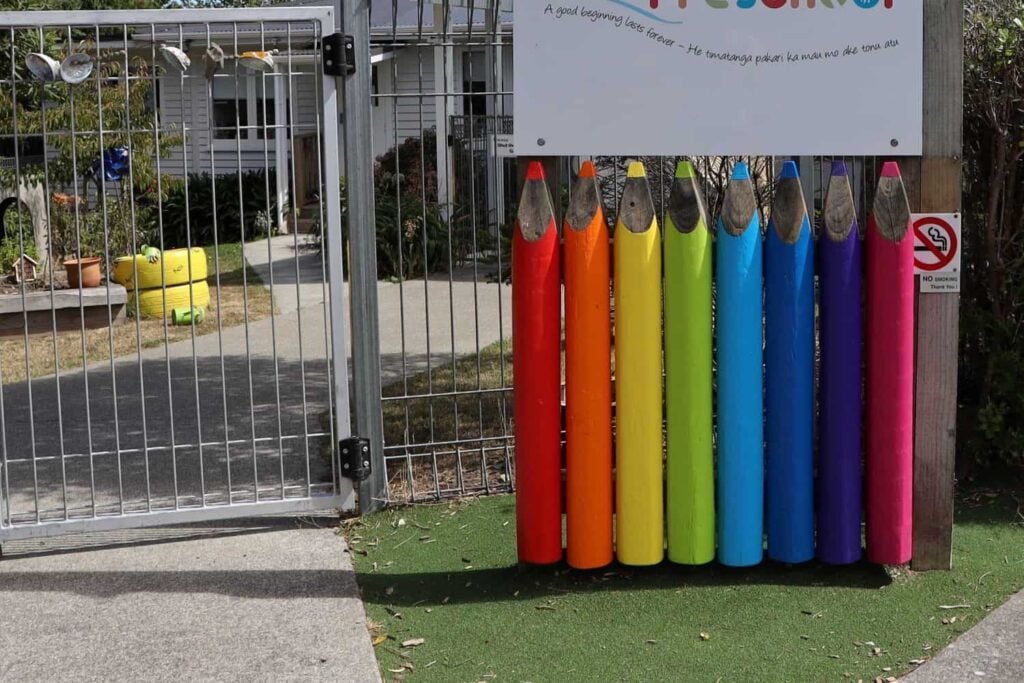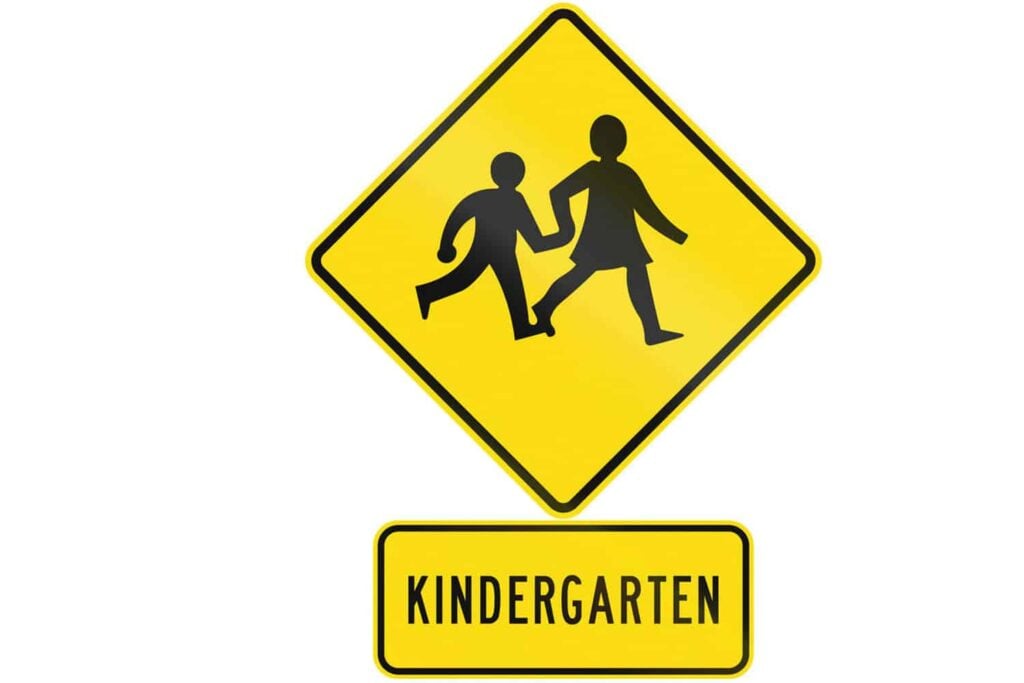The titles, authors and abstracts for papers published in the NZ Research in Early Childhood Education Journal, Volume 15, 2012 are shown below. To read any article a member login is needed – join us if you are not already a member. Many libraries subscribe to the journal so you may be able to view articles through your library’s system.
Order a copy of any article
Type in below the year, volume number and author(s) of the article you wish to order. The price per copy is NZ $19. Once you have completed your order it will emailed to you within 24 hours.
Original Commentary
It is Difficult to Review the Quality of Education if You Don’t Know What Children are Learning: ERO and Self-Review of Early Childhood Services
Ken Blaiklock
Unitec Institute of Technology
NZRECE Journal, Vol. 15, 2012, pp. 1 – 10.
Key words: Education review, quality, self-review, learning.
Abstract: A critical look at the New Zealand Education Review Office’s draft guidelines for reviewing early childhood services is provided in this paper. ERO’s guidelines provide a range of “evaluation indicators” to inform centres as to what is considered to be effective practice. The indicators that ERO provides in relation to the assessment of children’s learning are supportive of current practices in the use of narrative assessment or Learning Stories. This paper argues that such practices provide little evidence about what children are learning in early childhood centres, thereby making it very difficult to assess programme quality. The paper also argues that ERO needs to make more extensive use of international research on effective assessment strategies rather than limiting its theoretical and research base to mostly local approaches.
Original Research Paper
Embedding Literacy in an Early Childhood Education Programme: A Look into Montessori
Sheilpa Patel
University of Waikato
NZRECE Journal, Vol. 15, 2012, pp. 11 – 30.
Key words: Early childhood education, literacy development, Montessori, reading skills.
Abstract: Children begin school with a range of pre-literacy skills that serve as the foundation for later reading achievement. These skills include phonological awareness, alphabet knowledge and vocabulary. The New Zealand early childhood curriculum Te Whāriki is non-prescriptive in terms of literacy and allows for early childhood centres to develop their own literacy programmes with varying levels of emphasis on pre-literacy skills. This article describes research into the pre-literacy skills and knowledge of 23 children between the ages of 4.6 and 4.11 months attending two Montessori centres in New Zealand where the Head Teachers are Montessori trained and the centres use traditional Montessori resources and materials to develop literacy. The researcher investigated the efficacy of a Montessori approach to the development of literacy skills in four year olds in the context of current research around pre-literacy skills development in early childhood education.
Original Research Paper
Airplane Grows in the Tummy of Clouds: Living Through Relations in the Early Years of Life
Karen Guo
University of Waikato
NZRECE Journal, Vol. 15, 2012, pp. 31 – 41.
Key words: Relationality, child view, teaching, practice.
Abstract: Using a child’s expression that illustrates his mental image of constituted relations of living things, the author conceptualizes relationality, an interrelated view of being, and its importance for early childhood education. The difference between relation and interaction, and the significance of inter-human relationship are discussed as significant aspects for early childhood teachers to understand as they work with children. In particular, this paper seeks to provide insights into the potential contribution of relationality towards early childhood teaching practice.
Original Research Paper
Characteristics of Optimal Early Childhood Centre Outdoor Environments: Spaces and Places in which Children and Adults Want to Be
Cheryl Faye Greenfield
Manukau Institute of Technology
NZRECE Journal, Vol. 15, 2012, pp. 42- 60.
Key words: Outdoor environments, optimal outdoor design, self-review, critical pedagogy.
Abstract: The purpose of this project was to investigate what teachers deemed optimal in their provision of an outdoor environment. This research involved 46 teachers from 15 early childhood centres in the North Island of New Zealand. The findings reported in this paper will enable those responsible for outdoor design and provision to better understand the characteristics of optimal early childhood outdoor settings. The study was underpinned by the belief that children have the right to access optimal outdoor early childhood environments (Bilton, 2005; Frost, 2006; Greenfield, 2007a; Rivkin, 2000; Tovey, 2007). Research procedures included a questionnaire and photographs of spaces and places early childhood teachers thought were optimal in their outdoor environments. The teachers’ responses showed substantial agreement on what contributes to an optimal outdoor environment alongside features unique to that centre/community context. Eight key characteristics of optimal outdoor provision emerged from the findings; most salient were “relationships” and “opportunities, two threads which were clearly woven through the characteristics identified. The research further recommended a series of questions which early childhood services could use to self-review their outdoor area and their provisions for outdoor play (Greenfield, 2010).
Original Research Paper
Building a Shared Language of Coping: Dynamics of Communication between Parents and Preschool Children
Jan Deans, Erica Frydenberg and Rachel Liang
The University of Melbourne
NZRECE Journal, Vol. 15, 2012, pp. 61 – 83.
Key words: Early childhood, parent-child interaction, coping.
Abstract: This paper extends the current literature on social emotional development in the early years by providing an understanding of how young children comprehend and talk about everyday challenging situations and the way they cope with these. The paper also provides examples of how visual images in the form of Early Years Coping Cards may be used by the parents to engage young children in discussions about coping and coping-related activities in a family context. The focus of this paper is on parents’ engagement with their children as they talked about challenging situations and coping. The shared language between parents and children provides a forum to effectively engage in deeper meaningful conversations in a family context. This in turns provides a building block for children to develop social and emotional competence by learning how to share understandings through conversations with adults.
Original Research Paper
Children as Teachers: Creating Opportunities for Children to Share Expertise with their Peers
Penny Smith
Massey University
NZRECE Journal, Vol. 15, 2012, pp. 84 – 101.
Key words: Peer tutoring, peer collaboration, learning, play.
Abstract: In early childhood centres young children have the opportunity to interact with their peers in a play based environment. Play takes a central role and is a way by which children may challenge and extend each other’s thinking. Current accounts of how children learn and develop recognise the importance of peer interactions in this process. The study presented here explores how children worked together collaboratively and as peer tutors in two early childhood centres. The study investigated the strategies children adopted when teaching their peers and examined the role of the teacher and the learning environment in supporting collaborative endeavour. The key factors which impacted on the types of experiences children had with their peers are identified in this paper along with suggestions for how teachers can support collaborative endeavour and provide meaningful opportunities for children to teach their peers.
Original Research Paper
Being Agreeable? A Critical Examination of Communication Among IP Groups in Early Intervention
Lesley Dunn
Ministry of Education, Special Education
NZRECE Journal, Vol. 15, 2012, pp. 102 – 119.
Key words: Early intervention, individual plan (IP), collaboration.
Abstract: In New Zealand each child with an inclusive early intervention programme is supported by a group of adults: the child’s parent(s), teachers, early intervention specialists, and education support worker (teacher-aide). The group’s joint task is to prepare an individual plan (IP) for the child to follow in their regular early childhood education centre. In this study communication restraints within three IP groups were identified, which by their nature inhibited the groups’ ability to learn from each other and to evaluate their programmes. The use of reflective practice by these groups to evaluate their programmes could better support outcomes for children and stakeholders in inclusive early intervention teams in New Zealand.
Original Research Paper
Brooke’s Day: One Child’s Experience in an Early Childcare and Education Centre in New Zealand
Cynthia Margaret Prince
Eastern Institute of Technology, Napier
NZRECE Journal, Vol. 15, 2012, pp. 120 – 131.
Key words: Childcare, child experience, curriculum, learning, child rights.
Abstract: What is a child’s everyday experience of attending a fulltime early childhood education and care centre? This case study focuses upon one child’s experience within a centre in New Zealand and proposes that meaningful learning can occur when a child attends an early childcare programme. The methods used to gather data were videotaping, an observation of the child over the duration of one day, photo-elicitation and a semi-structured interview. Aspects of process, play, programme, environment, and interactions were examined. The rights of the child were examined and meaningful links were made with the national curriculum Te Whāriki (Ministry of Education, 1996). A socio-cultural approach provided the theoretical underpinning of the overall analysis. The findings provide a unique glimpse into one child’s daily experience in a childcare setting. Through centre examples it highlights a child’s rights to education and care and illustrates the principles of Te Whāriki in action through the learning experiences offered at the centre.
Original Research Paper
Early Childhood Practitioners Developing an Academic Voice and Tutors Making Sense of the Research Process
Rosie Walker and Michael Reed
University of Worcester, United Kingdom
NZRECE Journal, Vol. 15, 2012, pp. 132 – 144.
Key words: Community of practice, andragogy, practice based inquiry.
Abstract: The study shares insights into the way undergraduate students who are early childhood practitioners in their final year of study developed an academic voice beyond the walls of a University. It was designed by two University tutors who followed the progress of a number of student/practitioners who came together with the intention of editing and publishing summaries of their own practice based research. A qualitative approach was adopted and the authors describe their research position and the way literature surrounding active learning and communities of practice, impacted on their thinking. Methods of inquiry included, phenomenological interviews, research notes, participant observation and content analysis. The resulting information was examined in order to reveal the way students were making sense of their experience and the way the researchers were attempting to make sense of the research process. This included the way the researchers were both inside participants and outside researchers in the process. A reflexive stance was used to look back and learn from the process and consider how the methodology was shaped as the study progressed. Issues discussed include group motivation, the interrelationship between research and practice and the transformational nature of the process on students and tutors. The authors suggest what motivated, sustained and transformed thinking and action, was seldom a defined product or aim. It was more to do with subtle and less easily seen concepts such as personal and collective pride, learning from others, concern for others and the desire to share practice.
Original Research Paper
(Re)Viewing the Landscape Inside and Outside the Box: Providing Effective Support for Early Childhood Student Teachers
Janet Moles, Bella Tanielu-Dick, Vera Atiga-Anderson, Leautuli Sauvao, Heather Fuimaono, Suzanne Ryan, Shanali de Rose, Jan Ferguson and Lucy Fuli-Makaua
NZRECE Journal, Vol. 15, 2012, pp. 145 – 159.
Key words: Student, teacher, diversity, learning, study, teacher education.
Abstract: This paper presents key findings from a study that investigated how early childhood student teachers perceived the support, guidance and mentoring facilities that were available to them and aspects of their courses. The study was conducted by lecturers who were delivering the three year Bachelor of Teaching (ECE) degree to a multicultural student cohort in a New Zealand polytechnic. A multi-method approach was taken and involved practitioner action research, questionnaires and interviews with students. The findings showed that whilst first year students found large group guidance useful, second and third year students preferred small group and individual support. Being able to email lecturers, particularly during practicum placements, was important for students. During practicum placements Associate Teachers who were culturally competent communicators and fully informed about students’ coursework were important for student success. Practicums where students experienced open communication were included as part of the teaching team and felt well-informed about the philosophy and practices of the centre were found to increase their confidence and competence. However, students expressed concern that in some placements, they felt under informed or isolated. Hence, this paper argues that lecturers and Associate Teachers should be proactive about initiating communication with students and optimise opportunities for individual mentoring through questions and guided reflection.
Research Note
Cultural-Historical Borderlands: Common Grounds, Limits and Building Bridges in an Early Childhood Community
Gloria Quiñones
Monash University, Australia
NZRECE Journal, Vol. 15, 2012, pp. 160 – 175.
Key words: Culture, community, relationships, male teacher
Abstract: This paper discusses how early childhood education may be understood and experienced as a cultural-historical borderland, where mental borders and limits are made by people. Drawing on border theory and cultural-historical theory, different perspectives are considered in the study reported here on understanding the challenges and hopes that a community in a village of El Cañon in the state of Nuevo Leon, Mexico had in relation to early childhood education. The findings show how within a group of mothers borders were created. There were mothers who valued and created ‘common grounds’ through supporting early childhood services and there were other mothers who created ‘limits’ to early childhood services by not supporting the male teacher. Hedegaard’s (2008) model of learning and development through participation in institutionalised practice was used to analyse differences in perspectives. Digital video observations (Fleer, 2008) and their narratives (Fleer, 2010) were analysed to show how ‘crossing borders’ might bring ‘common ground’ and ‘limits’ to early childhood education. This paper reports and discusses the ‘conflict’, ‘limits’ and ‘borders’ that the community experienced.
Research Note
“It Pushes You Beyond the Boundaries”: The Paradox of Setting Teaching Goals in a Field-based Early Childhood Teacher Education Programme
Jenny Butcher and Caterina Murphy
NZ Childcare Association
NZRECE Journal, Vol. 15, 2012, pp. 176 – 185.
Key words: Associate Teachers (ATs), Mentoring Teachers (MTs), Visiting Lecturers (VLs), goal setting, teaching assessment.
Abstract: This research note reports on a section of a research study into the teaching practice experiences of early childhood student teachers in a field-based teacher education programme. Goal setting was one of the four research themes of that study and is the focus of this paper. Eleven student teachers were initially interviewed in 2008 with ten of the original group agreeing to be re-interviewed in 2010 as they neared the end of their teacher education programme. Varied experiences and attitudes to the benefits and success of goal setting were identified and the findings suggest ways for teacher education providers to guide and support students and their teaching. Implications drawn from this research will be of interest to teacher educators who support student teachers to set teaching goals to promote student reflection in practice.
Research Note
Solo Fathers with Young Children and their Social Needs
Harald Breiding-Buss, Brendon Smith & Peter Walker
Father & Child Trust, New Zealand
NZRECE Journal, Vol. 15, 2012, pp. 186 – 193.
Key words: Fathers, parenting, single parents, childcare.
Abstract: Solo fathers are an ‘invisible’ group in society, although Census data suggests they make up almost 5% of families in New Zealand. No research other than a review of Census data in 1999 has been done on this family type in New Zealand, and there is also very little published research overseas, especially where it includes young children. This is of concern as it implies that there are a substantial number of children in New Zealand whose living circumstances we know nothing about. The Father and Child Trust concluded a study on 13 solo fathers with children 0-8 years of age, where there was little or no mother involvement. The fathers were interviewed on a range of subjects, including their parenting, issues for their children and themselves, their views on fatherhood, and the effectiveness of parenting services. The sample of solo fathers was quite young (24 on average at the time of the birth of the child), with low educational and income status, and the majority became solo fathers because of parenting failure by the children’s mothers and after state intervention. There were strong signs of low social connectedness, inconsistent parenting, depression and emotional stress, which would all contribute to the low ‘presence’ of this family type in New Zealand society. This article discusses the implications of solo fatherhood (and involved fatherhood in general) for early childhood practitioners working with families.









